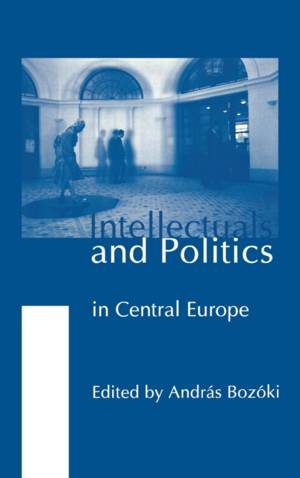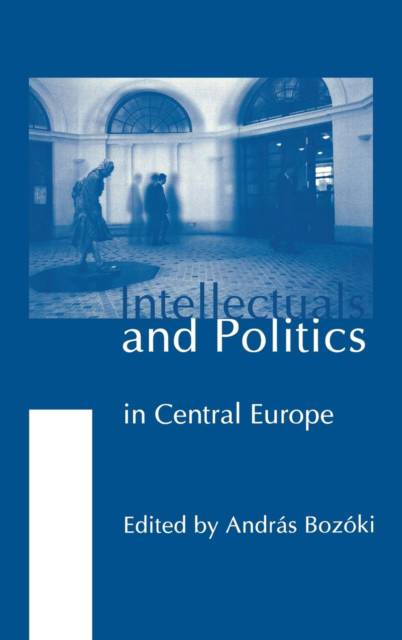
- Afhalen na 1 uur in een winkel met voorraad
- Gratis thuislevering in België vanaf € 30
- Ruim aanbod met 7 miljoen producten
- Afhalen na 1 uur in een winkel met voorraad
- Gratis thuislevering in België vanaf € 30
- Ruim aanbod met 7 miljoen producten
Zoeken
Intellectuals and Politics in Central Europe
Nenad Dimitrijevic, Helena Flam, Ivan Bernik, József Böröcz, Alina Mungiu-Pippidi, András Körösényi, Aviezer Tucker
Hardcover | Engels
€ 248,45
+ 496 punten
Omschrijving
Discussing the role of intellectuals in the political transition of the late 1980s and early 1990s and their participation in the political life of the new democracies of Central Europe, this book presents original essays from authors who discuss the eight countries in the region. In the Introduction, the editor gives a historical overview of the tradition of the political involvement of intellectuals in these countries, especially in the nineteenth century. The chapters which follow describe the typical political and social attitude of Central European intellectuals, including writers, poets, artists, and scientists. A unique feature of the book is that it deals not only with the role of intellectuals in the preparation of the peaceful revolutions in the individual countries, but also critically analyzes their role in the transition and their behavior in the emerging democracies. The most striking phenomenon, common to all the countries studied, is the disillusionment of intellectuals and their disappointment in the years following the transition, a period when the role of prophet should be replaced by that of politician for those who have chosen to stay in politics. This phenomenon has, in general, been much less subjected to systematic study than the role of intellectuals in the changes themselves.
Specificaties
Betrokkenen
- Auteur(s):
- Uitgeverij:
Inhoud
- Aantal bladzijden:
- 306
- Taal:
- Engels
Eigenschappen
- Productcode (EAN):
- 9789639116221
- Verschijningsdatum:
- 1/12/1998
- Uitvoering:
- Hardcover
- Formaat:
- Genaaid
- Afmetingen:
- 160 mm x 236 mm
- Gewicht:
- 585 g

Alleen bij Standaard Boekhandel
+ 496 punten op je klantenkaart van Standaard Boekhandel
Beoordelingen
We publiceren alleen reviews die voldoen aan de voorwaarden voor reviews. Bekijk onze voorwaarden voor reviews.











